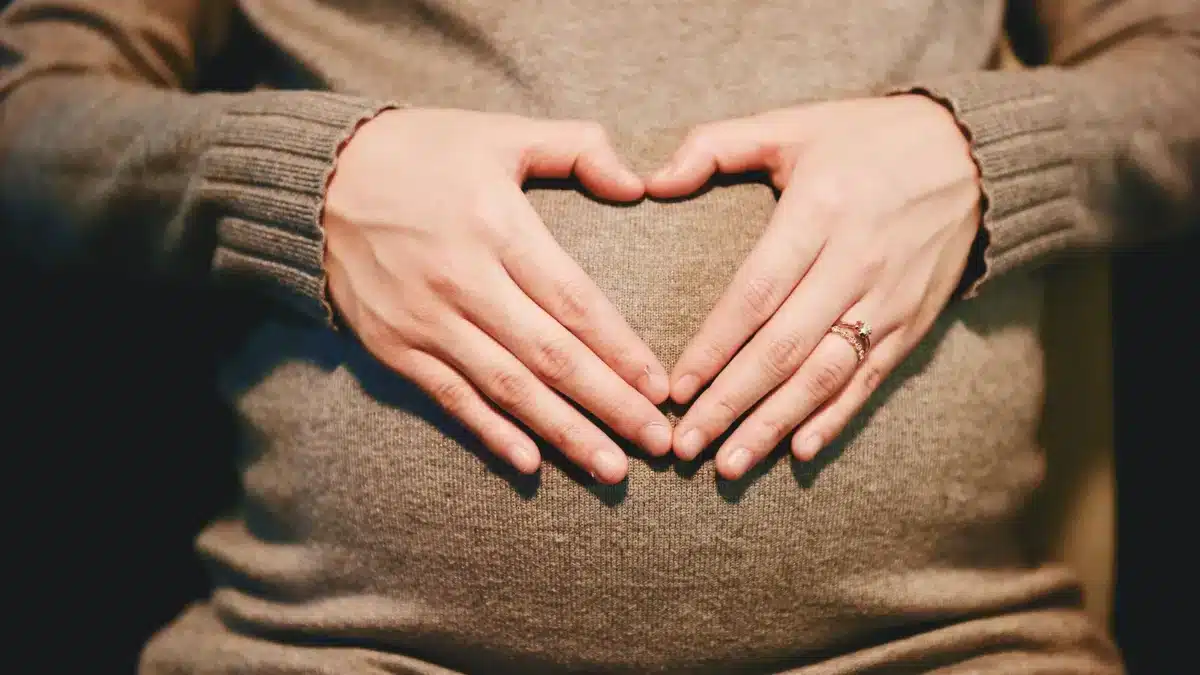The Fertile Fringe: Can You Get Pregnant During Perimenopause?
Perimenopause is a transitional stage in a woman’s reproductive journey, marking the natural decline of fertility.
However, the question of pregnancy during this time can be a topic of curiosity and concern.
Understanding the potential for pregnancy during Perimenopause is crucial for women navigating this stage of life.
This article will help you understand Perimenopause and fertility and the factors affecting pregnancy and family planning.
You will also find answers to questions like, “Can you get pregnant during Perimenopause?”
Pregnancy during Perimenopause
While fertility declines, is it still possible to conceive during Perimenopause?
Fertility naturally declines with age, so it’s essential to understand that pregnancy can still occur during Perimenopause.
As women age, their ovarian reserve diminishes, resulting in fewer and lower-quality eggs.
This decline makes conceiving more challenging but it is still possible.
Even during Perimenopause, some women may still release viable eggs, making pregnancy possible.
Factors influencing fertility during Perimenopause

Several factors influence fertility during Perimenopause. Those include,
Irregular Menstrual cycles
As women approach Menopause, their ovaries produce fewer eggs.
This fewer egg production also declines the quality of eggs during Perimenopause, further impacting fertility.
As a result, even if ovulation occurs, the chances of successful fertilization and implantation decrease.
Overall, irregular menstrual cycles make it difficult to predict ovulation accurately.
Hormone fluctuations
Hormone fluctuations further complicate the process.
Estrogen and Progesterone fluctuations can affect egg quality and uterine lining, making fertilization and implantation more difficult.
Hormonal changes can decrease cervical mucus, which plays a vital role in sperm transportation and survival.
As a result, the chances of sperm reaching the egg and successful fertilization diminish.
This hormone level decline during Perimenopause can cause anovulatory cycles, where ovulation does not occur.
This further reduces the opportunity for conception.
Age
Age is a crucial factor that significantly influences fertility during Perimenopause.
As women age, their reproductive capacity naturally suspends.
The decline in egg quantity and quality affects the chances of successful fertilization and implantation.
As a result, women in their late 30s and 40s may experience more difficulty conceiving compared to their younger counterparts.
How to increase your chances of getting pregnant during Perimenopause
Perimenopause brings challenges to fertility, but there are strategies to increase the chances of getting pregnant during this phase.
Raise your Progesterone levels
Progesterone plays a vital role in the menstrual cycle and supports early pregnancy.
You can do so by limiting alcohol and caffeine intake, getting adequate sleep, and considering Vitamin C, B6, and chaste berry supplements.
However, consult your doctor before considering any supplement.
Maintain a healthy lifestyle
Maintaining a healthy lifestyle is key.
Regular exercise, a balanced diet, and managing stress contribute to overall well-being and reproductive health.
Focusing on nutrition and fertility-boosting foods like beets and sweet potatoes can prepare your body for pregnancy.
Monitoring ovulation is essential
Tracking changes in cervical mucus and using ovulation prediction kits can help identify the most fertile days.
Timing intercourse accordingly can optimize the chances of conception.
Consider ART
If you are experiencing fertility challenges during Perimenopause, Assisted Reproductive Technologies (ARTs), such as In Vitro Fertilization (IVF), can be an option.
Consulting with a fertility specialist can provide personalized advice and options.
Emotional support
Seeking emotional support is essential.
Dealing with fertility concerns during Perimenopause can be emotionally challenging.
Joining support groups or seeking counseling can help manage stress and provide a supportive network.
Conclusion
While the chances of getting pregnant during Perimenopause decrease, it is still possible.
Understanding the relationship between Perimenopause and fertility is crucial.
Raising Progesterone, considering Assisted Reproductive Technologies, and seeking emotional
Support can improve fertility.
Each woman’s fertility journey is unique; consulting with a healthcare professional is essential for personalized guidance.
Exploring the available resources and staying informed can empower you to make informed choices regarding pregnancy during Perimenopause.
Frequently Asked Questions
Do you still ovulate in Perimenopause?
Yes, you can still ovulate in Perimenopause. During the transitional stage, hormonal blood levels can recede and surge. This leads not only to irregular periods but also to unpredictable ovulation cycles. Throughout this time, the ovaries continue to release eggs.
Can Perimenopause increase fertility?
Yes, it is possible that the body’s more aggressive stimulation of the ovaries could lead to a slight increase in fertility. On the other hand, this needs to be carefully examined and proven.
How can I get pregnant naturally during Perimenopause?
Eating a nutrient-dense diet, managing stress, supporting emotional health, and regularly exercising is essential to get pregnant naturally during Perimenopause. However, to increase the chances, focus on a natural fertility program to support adrenal gland and liver health.
What is the average age of Perimenopause?
There are two stages in the transition: Early-stage Perimenopause can begin in some women in their 30s, but most often, it starts in women ages 40 to 44. If you have concerns about Perimenopause or its symptoms, consult your doctor.






